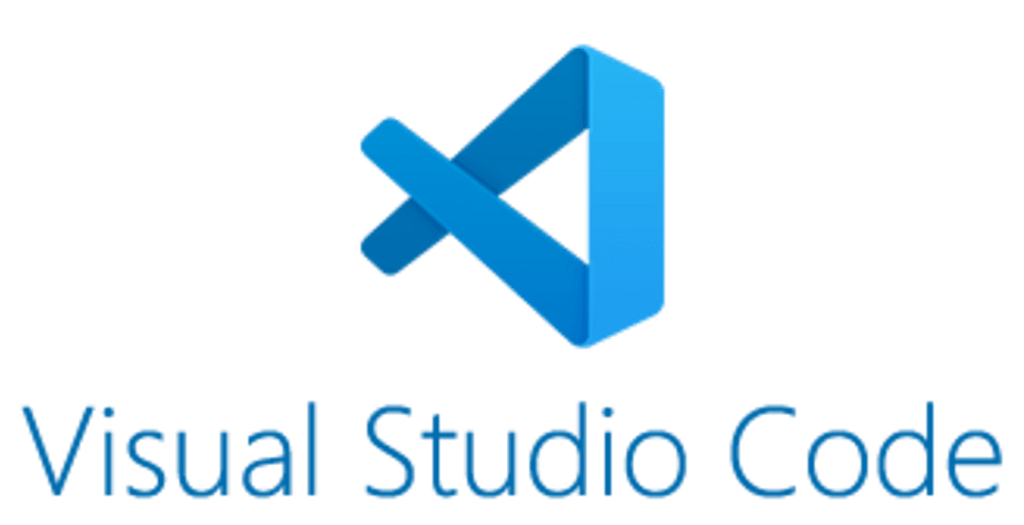The 5 Best HTML editors in 2024

If you’ve ever dipped your toes into the world of web development, you may already be aware of HTML, or HyperText Markup Language. As one of the oldest and most fundamental languages for creating websites, HTML remains crucial for web development even in 2024. It serves as the backbone for structuring content on the web.
Whether you’re a newbie to the world of computing or a seasoned veteran, having some basic HTML knowledge is invaluable. These skills can prove handy when managing a website, troubleshooting issues, or making quick edits. In fact, understanding HTML can give you a significant edge in customizing your web presence to better meet your needs.
HTML code can be written using virtually any text editor, from simple tools like Notepad to full-fledged coding suites like Visual Studio Code. While you can use very basic editors for coding HTML, there are significant benefits to using editors optimized specifically for HTML. These specialized editors offer features like syntax highlighting, code completion, and debugging tools, which can greatly enhance your coding efficiency and accuracy.
Given the sheer variety of editors available, it can be challenging to determine which one is best for you. In this blog post, we aim to help you understand the basics of HTML editors and highlight some of our favourites. For a more comprehensive list and detailed comparisons.
What is a HTML editor?
An HTML editor is any piece of software that allows users to write and edit HTML code. There are thousands of HTML editors available, varying greatly in terms of functionality, features, and price. While it is true that essentially any text editor can write HTML code, developers often prefer platforms specifically designed for coding due to the advanced features and functionalities they offer.
There are two main categories of HTML editors: WYSIWYG editors and Textual HTML Editors.
WYSIWYG Editors
WYSIWYG stands for “What You See Is What You Get.” As the name suggests, this type of editor provides an interface that allows you to see exactly how the HTML code will appear on a working web page. This visual approach is highly beneficial for beginners or those who prefer not to dive into the intricacies of HTML code. For more information on WYSIWYG editors and their benefits.
Textual HTML Editors
Textual HTML Editors are the more traditional and tried-and-tested platforms for writing HTML code. As the name implies, these editors are text-based, meaning you typically won’t be able to see a live preview of your HTML code on a working web page. Instead, you’ll interact directly with the HTML code itself, which can be more efficient for experienced developers. For a list of the best textual HTML editors. You may also find useful information on the HTML Editors page on MDN Web Docs.
Many editors on our list today feature a live preview, which could be considered WYSIWYG, but generally, developers will use textual editors for their robustness and flexibility.
Our top 5 HTML editors in 2020
Now that we’ve covered what HTML editors are and the differences between the two main types of editors, we can dive into some of our favorite HTML editors for 2024.
When choosing an HTML editor, the platform you select largely comes down to personal preference. As long as the application allows you to write basic HTML code, it can be considered a viable option. While each editor will provide the fundamental functions needed to write HTML, they differ significantly in terms of visual representation, additional features, and user experience.
Choosing the Right HTML Editor As a general rule of thumb, consider what additional features you might need, such as syntax highlighting, code completion, or integrated debugging tools. Some editors are more suited for beginners, offering intuitive interfaces and live previews, while others cater to experienced developers with advanced functionalities and customization options.
With that in mind, let’s jump into it!
1. Notepad++
If you know anything about coding, it might come as no surprise that Notepad++ takes our number one spot for the best HTML editor.
You may already be familiar with Notepad, the simple note-taking application included with every installation of Windows for many years. Notepad++ is essentially a more robust, flexible, and functional version of this vanilla Notepad, designed specifically for coding.
Key Features: Notepad++ includes a variety of features aimed at helping you write code more efficiently. Some of these features include:
- Syntax Highlighting: Colour coding helps you easily distinguish between different elements of your code.
- Line Numbers: Clearly visible line numbers make it easy to navigate and debug your code.
- Auto-Complete: Speeds up coding by predicting and completing your code as you type.
Performance and Usability: Notepad++ is renowned for its lightweight and fast performance. It can be downloaded for free in just a few minutes, with a very small download and installation size. Despite its simplicity, it packs a powerful punch in terms of functionality, making it a favorite among both novice and experienced developers.
Extensibility: The functionality of Notepad++ can be extended further with plugins, which add even more features to the editor. The Notepad++ Plugin Manager offers a wide array of plugins, allowing you to customize and enhance your coding environment to suit your specific needs.
Why Choose Notepad++?
- Free and Lightweight: Completely free to download and use, with a minimal installation footprint.
- Feature-Rich: Offers essential coding features such as syntax highlighting, line numbering, and auto-complete.
- Highly Extensible: Supports a wide range of plugins for added functionality.
- User-Friendly: Simple and intuitive interface, making it accessible for beginners and efficient for experts.
It’s easy to see why Notepad++ is the ideal choice for many web developers and HTML coders. Its combination of powerful features, lightweight design, and extensibility make it a top contender in the world of HTML editors. For more information and to download Notepad++, visit the official Notepad++ website.

2. Atom
Atom is a newer HTML editor that has soared in popularity in recent years. Launched in 2014, Atom is a free and open-source code editor developed by the team behind GitHub. Its rise to prominence is well-deserved, thanks to its powerful features and developer-centric design.
Customization and Flexibility: Atom boasts a high level of customization and flexibility, offering a premium, high-quality feel to the editing experience. The interface can be tweaked and altered to match your exact preferences, allowing you to effortlessly create your ideal coding environment. One of the standout features is the live preview, which enables you to see your code in action as you write, streamlining the development process.
Extensive Package Ecosystem: Features in Atom come in the form of packages, with 81 built-in and a staggering 8,700 downloadable packages available. This extensive ecosystem allows you to add almost any functionality you need. You can even build your own packages from scratch, tailoring the editor to your specific requirements. For a comprehensive list of popular packages, visit the Atom Packages page.
Seamless Git and GitHub Integration: As you might expect, Atom features seamless integration with Git and GitHub, making version control and collaboration straightforward. This integration is a major advantage for developers who frequently use GitHub for their projects. For more information on using Git and GitHub with Atom, check out GitHub integration guide.
Developer-Centric Design: Atom is built by developers, for developers. This philosophy is evident in its design and functionality. Developers can contribute, edit, and share their own source code with the community, fostering a collaborative environment. The Teletype feature supports real-time collaboration, making it easier for teams to work together on projects. For more details on using Teletype, explore the Teletype documentation.
Why Choose Atom?
- Highly Customizable: Tailor the interface and functionality to fit your exact needs.
- Live Preview: Instantly see the results of your code, enhancing the development process.
- Extensive Package Library: Thousands of packages available to extend Atom’s capabilities.
- GitHub Integration: Seamless Git and GitHub support for efficient version control and collaboration.
- Free and Open Source: Completely free to download and use, with a strong community backing.
Atom is completely free to download from GitHub and is a solid choice for any serious web developer. Its combination of powerful features, customization options, and developer-friendly tools makes it an excellent HTML editor for modern development needs.

3. Sublime Text
Sublime Text is a modern HTML editor that has gained massive popularity among the web development community. As freemium software, you can download and use Sublime Text for free, but access to more advanced features requires purchasing a full license.
User Interface and Features: Sublime Text provides an attractive, simple interface with a strong focus on efficiency and performance. One of its major selling points is the split editing feature, which allows you to edit multiple files side-by-side, even across different monitors. This capability is immensely helpful for developers, significantly speeding up the development process by enabling simultaneous editing of different sections of code.
Community and Extensibility: Community contribution is another strength of Sublime Text. Users can develop and share plugins, enhancing the editor’s functionality. Thousands of packages are available through the Package Control, all of which are open-source. This extensive library of plugins allows you to customize and extend Sublime Text to fit your specific development needs.
Performance and Efficiency: Sublime Text is known for its speed and efficiency. It handles large files and complex projects with ease, providing a smooth and responsive user experience. Features like syntax highlighting, code completion, and a powerful search tool further enhance productivity.
Licensing and Costs: While Sublime Text is a great option for developers looking to streamline their workflow, the freemium licensing model can be a limitation. To access advanced features, you will need to purchase a license, which might be a deterrent for some users. However, if your needs are limited to basic HTML editing, Sublime Text remains a top-notch choice.
Why Choose Sublime Text?
- Efficient Interface: Clean and user-friendly design focused on performance.
- Split Editing: Allows simultaneous editing of multiple files, boosting productivity.
- Extensive Plugin Library: Thousands of community-developed plugins available for customization.
If you are looking for a powerful and efficient HTML editor, Sublime Text is an excellent option. For those who need advanced features, budgeting for a license will be necessary, but the investment can be worthwhile for the productivity gains. For more information on Sublime Text and its features, visit the official Sublime Text website.

4. Komodo Edit
Komodo comes in two different versions: the free Komodo Edit and the paid Komodo IDE. Functionally, they are very similar, with Komodo Edit acting as the streamlined, free version of the full-featured Komodo IDE.
Komodo Edit provides a robust set of features for HTML, CSS, and XML development, making it a powerful tool for web developers. It also supports additional programming languages, offering versatility for various coding needs. Key features include auto-completion, debugging tools, and a customizable interface, all of which can be further enhanced with a library of downloadable plugins.
Performance and Usability: Komodo Edit runs very efficiently, being both lightweight and multi-platform. Whether you are using Windows, macOS, or Linux, installing Komodo is straightforward and hassle-free. This cross-platform compatibility makes it an excellent choice for developers working in diverse environments.
Limitations: Perhaps the most notable downside of Komodo Edit is its lack of advanced features compared to its paid counterpart, Komodo IDE. For serious web development projects requiring advanced functionalities, you might want to consider other HTML editors or upgrade to Komodo IDE. For a detailed comparison of the features available in Komodo Edit versus Komodo IDE, you can visit the Komodo IDE comparison page.
Why Choose Komodo Edit?
- User-Friendly: Easy to use with a straightforward installation process.
- Versatile: Supports multiple programming languages and development tools.
- Customizable: Offers a range of plugins to enhance functionality.
If you’re looking for an easy-to-use, fast HTML editor, Komodo Edit might just be the perfect option for you. However, if your web development needs are more advanced, you might benefit from exploring other editors or considering the paid Komodo IDE. For a broader perspective on HTML editors. Additionally, for the latest updates and community insights, you can explore the Komodo Community.

5. Netbeans
One of the older platforms on our list, Apache NetBeans is a free and open-source integrated development environment (IDE). It supports development in several languages, including PHP, HTML, JavaScript, and C++.
While NetBeans is primarily specialized for Java development, its functionality and helpful tools also make it a good choice for coding HTML. However, it is important to note that there is a learning curve associated with this platform – it may not be as intuitive as some of the other options on this list. For more tips on getting started with NetBean.
Key Features:
- Code Templates and Generators: NetBeans offers a variety of code templates and generators, which can speed up your development process by providing reusable code snippets.
- Project and Team Management Tools: The platform includes various tools for managing projects and collaborating with team members, making it suitable for larger development environments.
- Plugin Marketplace: Additional features can be added through plugins, which are freely available from the NetBeans marketplace. Developers can also create and share their own plugins, enhancing the platform’s functionality.
User Experience: NetBeans provides a comprehensive set of tools that can be highly beneficial in a collaborative development setting. However, its extensive features can make the initial learning process a bit challenging for beginners. Once mastered, though, it becomes a powerful tool for HTML and other types of development.
Why Choose NetBeans?
- Versatile Development Environment: Supports multiple languages and integrates well with various development tools.
- Strong Community Support: Backed by a robust community that continuously contributes plugins and resources.
- Ideal for Large Teams: Excellent for environments requiring version control and collaborative tools.
If you’re working in a large development environment with a need for version control and collaboration tools, NetBeans could be a good option for you. Otherwise, you might find one of the other HTML editors to be more user-friendly and straightforward. For a detailed comparison of HTML editors, check out our HTML editor comparison guide. Additionally, you can explore the official NetBeans website for more information and resources.

6. Visual Studio Code
Visual Studio Code, often abbreviated as VS Code, is one of the most popular and versatile code editors available today. Developed by Microsoft, this open-source editor has quickly become a favorite among developers due to its extensive features, robust performance, and customizable interface.
Key Features:
- IntelliSense: VS Code offers advanced IntelliSense features, including code completion, parameter info, quick info, and member lists, which greatly enhance coding efficiency.
- Integrated Terminal: The built-in terminal allows you to execute commands directly from the editor, making it easier to run scripts and manage your development environment without switching windows.
- Extensions Marketplace: With a vast marketplace of extensions, you can add support for virtually any programming language, integrate with various development tools, and customize your development experience to fit your needs.
- Git Integration: Visual Studio Code has excellent Git integration, allowing you to manage your source code versioning seamlessly within the editor.
- Live Preview: Although primarily a textual editor, VS Code supports live previews through extensions, making it easy to see how your HTML and CSS changes affect your web pages in real-time.
User Experience: VS Code provides a clean and intuitive interface, making it accessible for both beginners and experienced developers. The editor is highly customizable, allowing you to tweak the theme, layout, and key bindings to suit your preferences. The performance is also top-notch, handling large files and complex projects with ease.
Why Choose Visual Studio Code?
- Versatility: Suitable for a wide range of programming languages and development tasks.
- Community Support: Backed by a large and active community, ensuring continuous improvements and a wealth of resources.
- Free and Open Source: Available for free, with full access to its source code on GitHub.
For more information on Visual Studio Code and its features, you can visit the official Visual Studio Code website. Additionally, for a detailed comparison with other popular editors.
In Conclusion
We hope that after reading this guide, you’ll have a clearer idea of what you’re looking for in an HTML editor. There is no single “right” choice – as we mentioned, any HTML editor can get the job done. Ultimately, it comes down to your personal preferences and the specific features you value most.
If you’re writing HTML code, you might be planning to host your website on the internet. At UKHost4u, we offer a wide range of affordable web hosting plans to help you get online quickly and easily. Whether you’re a beginner or an experienced developer, our hosting solutions are designed to meet your needs. For more information, check out our web hosting plans.
Additionally, for more insights into choosing the best HTML editor and web hosting options, you can explore HTML Editor reviews on TechRadar and visit the UKHost4u blog for the latest tips and updates.

